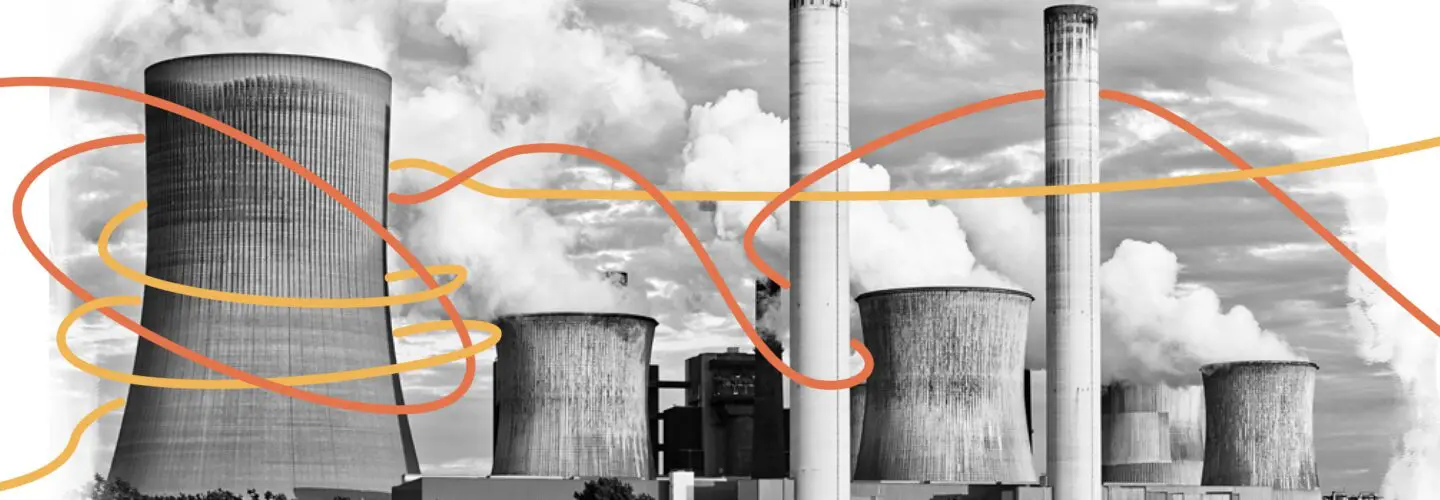RGGI speeds declines in power plant emissions and spurs economic growth: Acadia report
Dive Brief:
- Economic growth and declines in carbon dioxide power plant emissions and retail electricity prices have been more significant in nine states that have consistently participated in the Regional Greenhouse Gas Initiative than in other states, a clean energy research and advocacy group said Tuesday.
- The report by Acadia Center coincides with efforts by Gov. Glenn Youngkin, R, to pull Virginia out of RGGI and legal challenges blocking Pennsylvania’s participation in the group of 12 Eastern states.
- Acadia Center also called on member states to reduce the RGGI reporting threshold for generators to 15 MW in communities with high rates of asthma as it says has been recommended by some environmental justice stakeholder groups.
Dive Insight:
Acadia Center says the nine states that are consistently active in RGGI are Connecticut, Delaware, Maine, Maryland, Massachusetts, New Hampshire, New York, Rhode Island and Vermont. New Jersey, Pennsylvania and Virginia also are RGGI members.
With legal action pending, Pennsylvania is not participating in CO2 allowance releases, RGGI said. New Jersey withdrew in 2012, but returned in January 2020.
Participating states have established budget trading programs that limit CO2 emissions from power plants, issue CO2 allowances and participate in carbon dioxide allowance auctions.
Between 2008, when RGGI was launched, and 2021 CO2 from power plants has declined nearly 50% in the nine states, which Acadia Center said is 10% more than in 40 states that have not “consistently had a price” on greenhouse gas emissions.
In addition, economic growth per capita increased 50% in the nine states, or 13% more than the rest of the country, according to the report. And retail electricity prices in RGGI states have fallen 3.2% compared to a 7.7% increase in prices elsewhere in the U.S., the report says.
Economic growth is the result of many factors, such as a trained workforce, taxes, transportation, a mix of industries and other state characteristics. Amy Boyd, vice president of climate and clean energy policy at Acadia Center, said in an interview that a drop in CO2 emissions and economic growth correlate, but the report does “not try to prove causation.”
Critics say RGGI’s model isn’t cheap. An executive order Youngkin signed in January 2022 to re-evaluate Virginia’s participation in RGGI and begin the regulatory process to end participation is based on information “that points to higher costs for residential and industrial ratepayers,” the governor said.
Because of the “captive nature” of ratepayers, the ability of power generators to pass costs onto consumers and the requirement in Virginia that RGGI proceeds be dedicated to grants programs, participation in RGGI is a direct carbon tax on all households and businesses, Youngkin said.
Pennsylvania businesses, too, question cost advantages cited by RGGI. Kevin Sunday, director of government affairs at the Pennsylvania Chamber of Business and Industry, which represents 10,000 member businesses, said in testimony to state lawmakers in March 2022 that with environmental policy, “markets are, broadly speaking, more effective than command-and-control approaches to regulation.”
Dynamics are at play in the RGGI design “that are producing compliance costs that are beyond equitable,” he said.
Unlike other Pennsylvania air quality programs that prohibit credits traded by third parties except in limited cases, third parties such as investors, funds and institutions that do not have direct compliance obligations under RGGI are “welcome to participate” in auctions, he said.
Futures market activity also has increased significantly, he said. And exchange-traded funds, mutual funds and 501(c)3 organizations “have acquired and held RGGI allowance by the millions, further pushing prices upward,” Sunday said.
Leveraging the RGGI market construct for financial gain or using it to offset emissions from sources other than power plants “are beyond the goals of RGGI as it was originally constituted,” he said.
The two large states have an outsized role in reducing emissions. In 2021, Virginia accounted for 25% of greenhouse gas emissions among RGGI states, Acadia Center said. If Pennsylvania participated in the program last year as planned the two states combined would have accounted for nearly 57% of total greenhouse gas emissions in RGGI, Acadia Center said.
Read the original article from Utility Dive here.




















Follow us